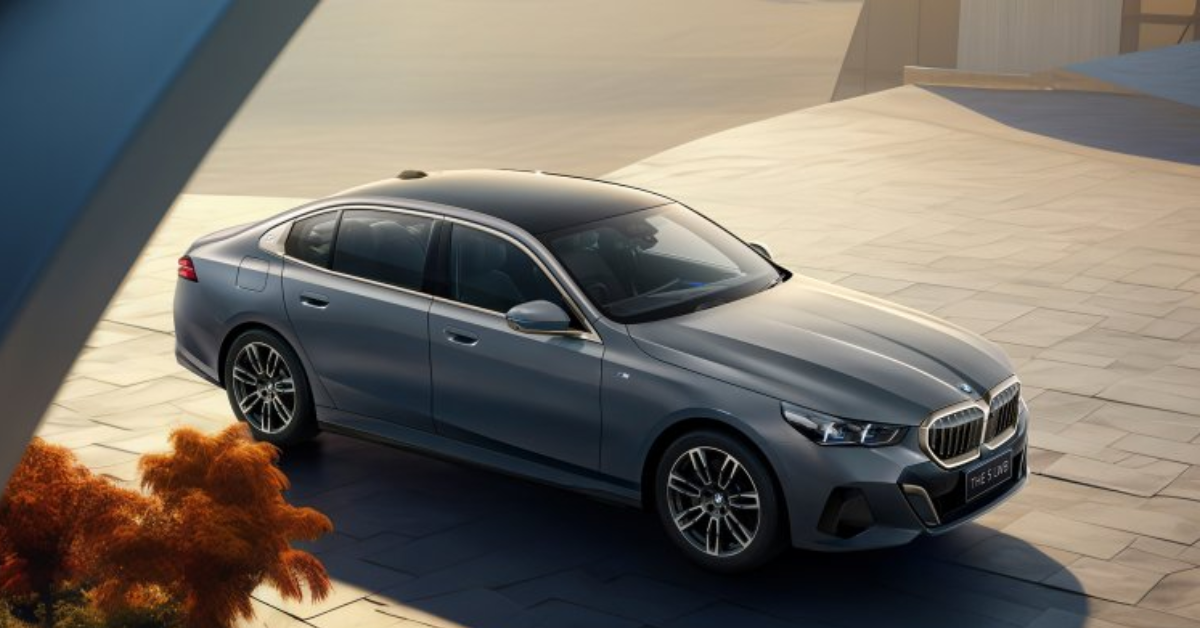BMW India has officially announced that it will increase the prices of its entire model range by up to 3% starting September 2025. This decision comes as part of the company’s strategy to balance rising input costs, currency fluctuations, and global economic factors. For both new buyers and existing BMW enthusiasts considering an upgrade, this news carries significant implications.
In this blog, we will break down why BMW is raising prices, which models are likely to be impacted, and how this move fits into the larger picture of India’s luxury automobile market.
Why is BMW Increasing Prices in September 2025?
The decision to hike prices by up to 3% is not unusual in the luxury automotive sector. Several reasons contribute to BMW’s move:
- Rising Input Costs
Raw materials such as steel, aluminum, and high-tech electronic components have seen global price fluctuations. Since BMW imports many parts, the rising cost of production directly impacts the final product pricing. - Currency Exchange Rates
The luxury car segment in India is heavily dependent on imports. Currency volatility between the euro, dollar, and Indian rupee plays a key role in determining costs. Depreciation of the rupee increases the landed cost of imported components. - Inflation and Market Conditions
Inflationary pressures in the global market also impact logistics, shipping, and labor costs. Luxury automakers like BMW have to adjust their pricing to remain sustainable. - Product Upgrades and New Technology
BMW is introducing more advanced safety features, connected technologies, and electrified powertrains. The price hike also reflects the integration of these high-value technologies in upcoming models.
How Much Will Prices Go Up?
BMW has confirmed an up to 3% increase across its portfolio. While the exact model-wise hike has not been revealed yet, here’s what buyers can expect:
- Entry-Level Models (BMW 2 Series, X1)
These cars currently sit in the ₹40–50 lakh range. A 3% hike could mean an increase of ₹1–1.5 lakh. - Mid-Segment Models (BMW 3 Series, X3, 5 Series)
For cars priced around ₹60–80 lakh, the hike could range between ₹1.8–2.5 lakh. - Premium Models (BMW 7 Series, X7, iX EV, M Series)
High-end models priced above ₹1 crore could see a rise of ₹3–4 lakh, depending on configurations. - Electric Vehicles (i4, iX1, i7)
EVs are likely to face a similar increase, though government subsidies and state-level incentives might help offset some of the added cost.
Impact on Indian Buyers
For potential BMW customers, this announcement creates both challenges and opportunities:
- Pre-Hike Bookings May Rise
Buyers who are already considering a BMW may try to secure their purchase before September 2025 to avoid the increased prices. Dealerships may see a surge in bookings in the next few weeks. - Luxury Car Financing Could Get Costlier
Even a 3% hike can significantly impact EMIs on luxury cars. For instance, a ₹70 lakh BMW with a 3% increase would add roughly ₹2 lakh to the cost, pushing up the monthly installment. - Buyers May Consider Pre-Owned Cars
With the new car prices going up, more customers might turn to the premium pre-owned BMW segment, which is already growing in India. - Effect on Entry-Level Luxury Buyers
First-time luxury car buyers who were stretching their budget for an entry-level BMW might reconsider or delay their purchase.
How Does BMW’s Price Hike Compare with Rivals?
BMW is not alone in this move. Other German luxury carmakers like Mercedes-Benz and Audi have also announced price increases in recent years. The luxury car segment in India has been under pressure due to rising costs and taxation policies.
- Mercedes-Benz India often raises prices 2–4% annually, citing similar reasons.
- Audi India follows a similar pattern, aligning itself with global strategies.
- Jaguar Land Rover and Volvo have also hinted at periodic adjustments.
So, BMW’s 3% hike is in line with the industry trend rather than an isolated move.
The Bigger Picture: BMW’s Strategy in India
Despite the price hike, BMW continues to see strong demand in India. In fact, the luxury car market in the country has been expanding due to rising disposable incomes, aspirational buyers, and increasing acceptance of financing options.
BMW has been focusing on:
- Electrification: With models like the i4, iX1, and i7, BMW is strengthening its EV portfolio in India.
- Localized Manufacturing: The BMW Group Plant in Chennai assembles many models locally, which helps in controlling costs to some extent.
- Customer-Centric Offers: Flexible financing, maintenance packages, and extended warranties continue to attract buyers.
The price hike, while inevitable, is not expected to dampen BMW’s growth trajectory in India.
What Should Buyers Do Before the Price Hike?
If you’re considering a BMW purchase, here are some tips to act wisely before September 2025:
- Book Early: Secure your preferred model and configuration before the hike is implemented.
- Check Dealer Offers: Some dealerships may offer special finance packages or pre-hike discounts.
- Compare Financing Options: Even a small hike can affect EMIs, so explore banks and NBFCs for the best loan rates.
- Consider Pre-Owned BMWs: Certified pre-owned cars offer good value and may save lakhs compared to post-hike prices.
- Think Long-Term: A BMW is a long-term investment, and the hike should be viewed in context of ownership benefits like driving experience, luxury features, and brand prestige.
Conclusion
BMW India’s announcement of a price hike of up to 3% starting September 2025 reflects the broader challenges faced by luxury automakers in balancing rising costs and maintaining profitability. While this may pinch buyers’ pockets, the demand for premium vehicles in India remains strong, and BMW’s strategy of combining luxury with performance ensures its continued appeal.
For buyers, the key takeaway is clear: if you’re planning to own a BMW, making the purchase before September could save you a significant amount. For the industry, this price revision signals that the luxury car market in India continues to evolve, adapting to global economic realities while catering to a growing base of aspirational buyers.
